Don’t let depression rob you of one more day. Sierra Tucson can provide you with the personalized treatment you need so that you can live the healthier life you deserve. Learn more about our comprehensive services in Tucson, Arizona.
Learn More About Depression Treatment
Learn more about depression treatment at Sierra Tucson
The presence of any type of mental health condition can cause much distress in the lives of those afflicted by them. Depression is one such mental illness that can elicit monumental disruptions within all areas of a person’s life. People who suffer from depression often struggle with overwhelming feelings of despair that subsequently result in their feeling helpless to change and hopeless about their future. While everyone experiences periods of sadness and loneliness throughout their lifetime, those suffering from depression experience these feelings to such an extreme that it hinders their ability to function appropriately on a daily basis.
At Sierra Tucson, the best rehab center for depression treatment, we understand how troubling it can be to face each day when it is tainted by the feelings of depression, so we have developed specialized treatment that is tailored to help individuals who need assistance in overcoming the detrimental impacts that this disorder can elicit.
How to Help a Loved One
Helping a loved one get treatment for depression
Depression, can cause a great deal of devastation in the lives of sufferers. In fact, individuals suffering with depression can cause those closest to them to develop overwhelming feelings of worry and fear for what the future holds for the person they care about. Rest assured, however, because as a concerned loved one, there are some things you can do to help your friend or family member get the treatment they need to manage the feelings of depression:
- Conduct research on depression so that you can understand the causes and potential impact of this mental illness. Additionally, it is a wise choice to educate yourself on depression so that you can be more adept at identifying them in your close friend or family member.
- Communicate to your loved one that you are there for them, willing to listen should they want to talk about the feelings they are experiencing.
- If your loved one is engaging in self-harming behaviors or conveying thoughts or plans for suicide, it is imperative that you establish a safety plan with your loved one so that help can be immediately sought should these behaviors occur or thoughts be acted on.
- Research treatment options and providers and include your loved one in this process. By making the treatment-seeking process a collaborative one, your loved one can feel empowered in taking steps toward bettering their life.
- Reach out to your loved one’s treatment provider of choice and ask about the process of admissions and treatment methods used. By doing this, and by providing this information to your loved one, it could alleviate any concerns or worries they may be feeling about the possibility of seeking treatment for depression.
- Inform your loved one that you are willing to attend their initial assessment to offer support and any additional information that could help formulate their treatment plan.
- Be part of your loved one’s care and be diligent about attending family sessions. By being part of your loved one’s therapeutic process, you are showing that you care and are supportive of your loved one during this difficult time.
Lastly, it would be beneficial to be in contact with your loved one’s providers of care. Provided your loved one grants consent for you to speak with those delivering their treatment, contact with these professionals can help you stay current on your loved one’s progress and you can receive beneficial resources and tools for helping your loved one once they have completed services.
Why Consider Treatment
Why consider treatment for depression at Sierra Tucson
When individuals are suffering from depression and are denied access to appropriate treatment interventions, the result can be a vast array of negative impacts. People with depression often find themselves struggling to perform at the expected level occupationally or may be frequently absent from work, both potentially leading to job loss. These individuals may also struggle to adhere to typical daily tasks and responsibilities, exacerbating feelings of worthlessness and decreased self-esteem. Interpersonal relationships can become highly disturbed, as those suffering with depression frequently isolate themselves. Furthermore, the longer that depression persist without the intervention of appropriate treatment, the more susceptible people become to developing suicidal ideation, or even potentially making suicidal attempts. Tragically, many individuals plagued by depressive disorders also end up engaging in self-harming behaviors. Fortunately, there are options for treatment that can successfully alleviate the distresses of depression and prevent such detrimental outcomes.
Types of Treatment
Types of depression treatment offered at Sierra Tucson
As an internationally known and respected treatment provider of medical, therapeutic, and experiential services, our treatment center is pleased to offer state-of-the-art treatment for a wide range of behavioral health concerns. Through the integration of evidence-based practices and integrative therapies, our rehab prides itself on being a leading provider of services that are effective in treating addictions and other behavioral health problems. Holistic and individualized treatment is the cornerstone of the best care offered at our rehab center, and is provided by a staff of qualified and experienced professionals. At Sierra Tucson, a premier depression treatment center, our primary goal is to deliver services in such a manner that all who come to us for treatment will benefit from them and resume the pursuit of a healthy and productive lifestyle.
As part of the premier, individualized care we offer, your admissions process will begin in our secure behavioral health inpatient unit. You will meet with our psychiatrists and nurses to receive a comprehensive assessment that includes a physical exam, psychiatric evaluations, a skin assessment, and optional genetic testing. To provide the attention and safety you deserve, this unit is conveniently located in the center of our campus and offers the opportunity for a bi-directional continuum of care within our levels of treatment.
Treatment for depressive disorders is delivered through our rehab’s Mood Program. Offered within our behavioral health residential treatment center, services supplied in this treatment plan are designed to produce the most favorable outcomes for all residents. The neuropsychiatric treatment provided in this plan is designed to care for the whole person – mind, body, and spirit – in a naturally scenic, tranquil setting that offers the best comprehensive care. Using an interdisciplinary team approach through a customized blend of conventional, complementary, and evidence-based treatments, our caring and compassionate staff strives to support each person’s unique capacity to flourish and achieve overall wellness. The all-encompassing goal of the Mood Program treatment plan is to help residents reduce their depression, while also helping them to gain the tools needed to resume healthy daily functioning, free from the turmoil elicited by depression.
The types of services you receive will be determined by your treatment team. The intensive nature of this treatment incorporates cognitive behavioral therapy (CBT) and dialectical behavior therapy (DBT), in addition to continuously providing psychodynamic therapy throughout the various aspects of the therapeutic process. Residents engaged in our Mood & Anxiety Program are offered the following treatment methods, which are outlined in each person’s individualized treatment plan, as well as in our treatment center’s daily schedules:
Medication management: Individuals who are suffering from depression often find alleviation through the implementation of psychotropic medications. The need for medication, however, is always determined on a case-by-case basis. Residents engaged in the Mood & Anxiety Program at our rehab are seen by a psychiatrist or attending physician on a weekly basis in order to determine the need for medication, monitor medication, and adjust any medication that has been prescribed. Registered nurses and clinical technicians also assist in monitoring a resident’s medication needs.
Individual therapy: Upon entering the Mood & Anxiety treatment plan, each resident is assigned a primary therapist with whom they will meet at least once each week. All individual sessions at our treatment center are conducted by master’s-level clinicians and/or licensed psychologists, and are designed to afford residents the opportunity to discuss their progress in treatment, address any concerns that may arise, and process through various feelings that they are experiencing.
Group therapy: At the time that residents are admitted into the Mood & Anxiety treatment plan, they are assigned to a small group of peers, all of whom are engaged in the same plan. This group will meet together for therapy sessions several times throughout the week. In addition to serving as a general process group, topics that are covered during these group sessions at our rehab may include, but are not limited to:
- Healing anxiety
- Managing stress
- Identifying and processing feelings of shame to move to a place of resilience
- Working through grief and loss
- Learning about codependency and coping skills
- Learning about holistic options for healthy living
- Learning tools for how to express anger in a healthy and productive manner
- Mindfulness
- Relapse prevention
Therapeutic & Recreational Activities: In order to help residents at our treatment center build a stronger sense of self and increased confidence as they reduces their depression, this treatment option offers residents a myriad of therapeutic activities, which are conducted on a daily or weekly basis. A resident’s participation in such activities will be outlined in their treatment plan and may include the following:
- Psychodrama
- Art therapy
- Enhanced equine therapy
- Play therapy
- Adventure therapy (including a ropes course and rock wall)
- Yoga
- Personal training
- Movement therapy
- Opportunities for additional exercise
- Qigong
Additional services for purchase: In order to best care for the needs of those who are working through depression, our treatment center is proud to offer a number of additional services through an innovative approach to treatment. Special time is set aside for selected individual appointments, which will be outlined in one’s treatment plan in order to address individualized needs. Such services may include, but are not limited to:
- Eye Movement Desensitization and Reprocessing (EMDR)
- Somatic Experiencing® Therapy (SE)
- Sensorimotor Psychotherapy
- Massage
- Mindfulness meditation
- Psychological testing
- Biofeedback
- Acupuncture
- Somato-Emotional Release (SER) massage
Should a resident require stabilization services while engaged in our rehab’s residential treatment, they are able to partake in the services supplied before returning to residential treatment. The staff of professionals conducts an ongoing assessment of each resident’s progress and needs and offers assistance in making this transition smooth so as to continue the process of healing with as little disruption as possible.
Continuing Care
Continuing care and levels of treatment for depression
Sierra Tucson’s method for providing all-encompassing care for every resident who comes for treatment includes thorough discharge planning and continuing care services that are second to none. Once a resident engages in services to treat depression at our treatment center, a comprehensive continuing care plan is devised so that they can remain successful once treatment is complete. During a resident’s stay, they will meet with continuing care staff to assess their needs and plan for discharge. Once engaged in residential treatment at our rehab, they will meet with the same continuing care staff, as well as the local treatment placement specialist (TPS), and participate in lectures and one-on-one planning sessions to ensure quality referrals and establish any follow-up appointments that may be required upon discharge.
Furthermore, residents exiting the residential treatment center, along with their family members, can benefit from Connect365, our signature year-long service that helps to bridge the gap between residential treatment and life in recovery. Connect365 is offered at no additional cost and includes a personal recovery coach, a recovery management system via a mobile app, and ongoing encouragement from the participant’s support team. Residents connect with their recovery coach during treatment in order to build a strong rapport with them prior to discharge.
Lastly, former residents can take part in our treatment center’s Alumni Relations. These services, which are offered for a lifetime, include support groups throughout the country, workshops, social activities, and the annual Alumni Retreat.
If you or a loved one wishes to receive the superior care that has improved the lives of many individuals who have struggled with depression or chronic depression, look no further than our rehab. The life you have envisioned begins here.













